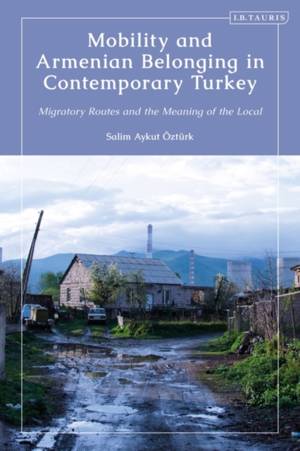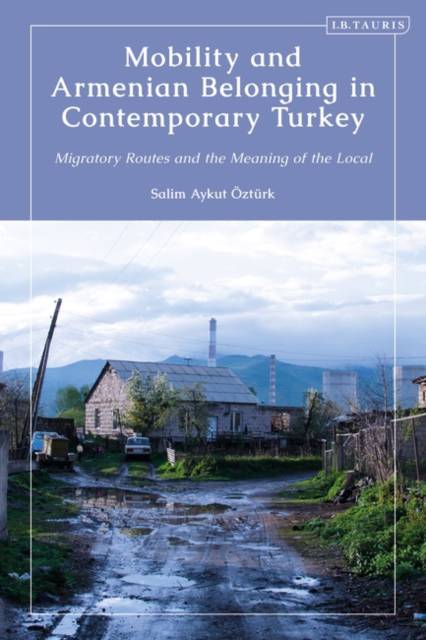
- Retrait gratuit dans votre magasin Club
- 7.000.000 titres dans notre catalogue
- Payer en toute sécurité
- Toujours un magasin près de chez vous
- Retrait gratuit dans votre magasin Club
- 7.000.0000 titres dans notre catalogue
- Payer en toute sécurité
- Toujours un magasin près de chez vous
Mobility and Armenian Belonging in Contemporary Turkey
Migratory Routes and the Meaning of the Local
Salim Aykut Öztürk
129,95 €
+ 259 points
Description
What remains and becomes Armenian in a historically informed moment of increased mobility? Taking an anthropological approach with ethnographic data collected from Turkey and Armenia over the course of almost 10 years, this book focuses on themes of migration, human movement, community-making and the conditions that facilitate mobility and place-making.
Looking at case studies ranging from bus and taxi drivers travelling between Armenia and Turkey to undocumented migrants deported from Turkey and now living in Armenian cities and Armenian residents of Istanbul, the author provides a vivid description of contemporary non-Muslim life in Turkey through the lives of Armenian Turkish citizens and undocumented migrants from Armenia, as well as Greek, Jewish and Kurdish communities. The author provides both a critical account of how historical and more contemporary forms of violence and structural discrimination have targeted Armenians in the country, and also focuses on the re-articulations and the appropriation of a sense of belonging by these and other minority communities.Spécifications
Parties prenantes
- Auteur(s) :
- Editeur:
Contenu
- Nombre de pages :
- 224
- Langue:
- Anglais
- Collection :
Caractéristiques
- EAN:
- 9780755645077
- Date de parution :
- 20-04-23
- Format:
- Livre relié
- Format numérique:
- Genaaid
- Dimensions :
- 156 mm x 234 mm
- Poids :
- 453 g

Les avis
Nous publions uniquement les avis qui respectent les conditions requises. Consultez nos conditions pour les avis.






